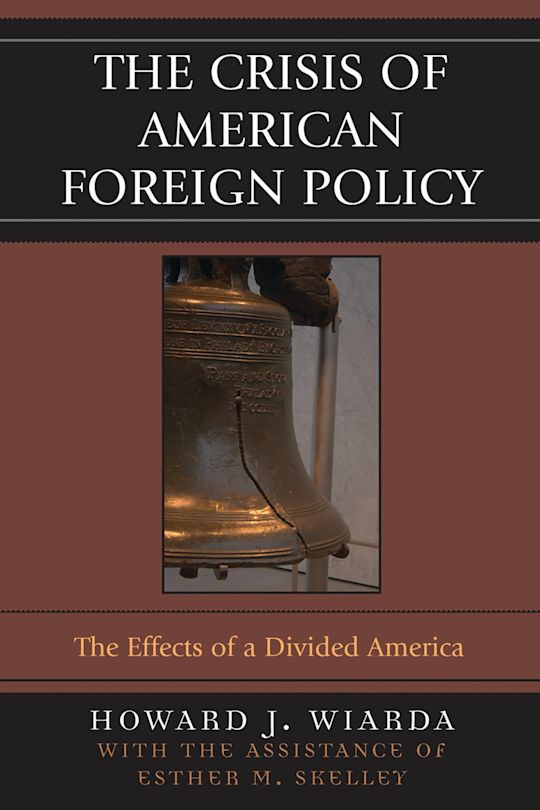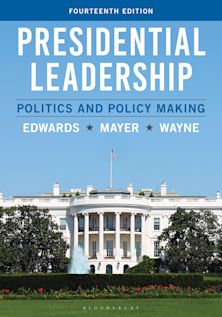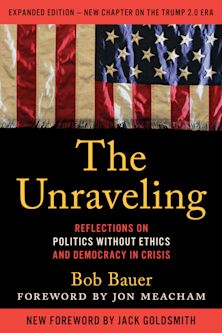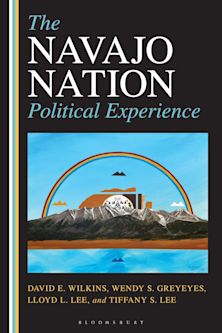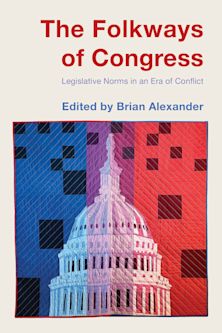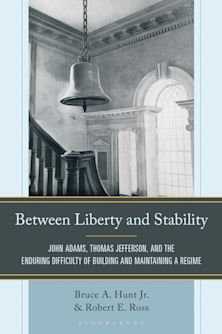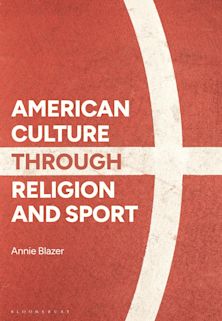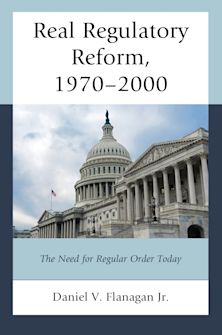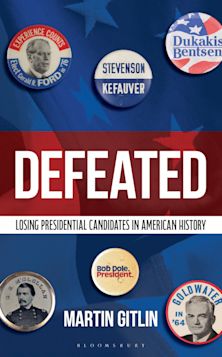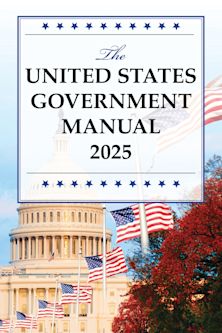- Home
- ACADEMIC
- Politics & International Relations
- American Government and Politics
- The Crisis of American Foreign Policy
The Crisis of American Foreign Policy
The Effects of a Divided America
- Textbook
The Crisis of American Foreign Policy
The Effects of a Divided America
- Textbook
This product is usually dispatched within 1 week
- Delivery and returns info
-
Free CA delivery on orders $40 or over
Exam copy added to basket
Choose your preferred format. Please note ebook exam copies are fulfilled by VitalSource™.
You must sign in to add this item to your wishlist. Please sign in or create an account
Description
In The Crisis of American Foreign Policy, noted scholar Howard J. Wiarda argues that the foreign policy of the United States reflects the divisions and dysfunctions we see in our domestic culture and society. Examining the main traditions, institutions, and challenges of American foreign policy, this text is an entertaining read as well as a serious one. It tackles such critical issues as ethnocentrism in foreign policy as well as U.S. efforts to extend democracy, human rights, and civil society in other countries. It includes a balanced chapter on globalization and a discussion on how to deal with authoritarian regimes. With his long experience in Washington policymaking, Wiarda offers especially innovative chapters on the links between foreign policy and Washington think tanks, lobbying and interest groups in the foreign affairs area, and Washington social life. Key areas covered include Europe, Asia, Africa, Latin America, and the Middle East. Concise, clearly written, well-organized, challenging, and provocative, this is a textbook that students and professors are sure to appreciate.
Table of Contents
Part I: American Foreign Policy: Crisis and Change
Chapter 1: American Foreign Policy: Politics and Paralysis
Chapter 2: New Challenges in U.S. Foreign Policy
Chapter 3: The Main Institutions of Foreign Policymaking
Chapter 4: The New Powerhouses: Think Tanks and Foreign Policy
Chapter 5: The Washington Social Circuit and Foreign Policy
Part II: Hot Global Issues
Chapter 6: Ethnocentrism and Foreign Policy: Can We Understand the Third World?
Chapter 7: The Democracy Agenda in U.S. Foreign Policy
Chapter 8: Human Rights Policy
Chapter 9: Friendly Tyrants and American Interests
Chapter 10: Globalization and Its Critics
Part III: Regional Responses
Chapter 11: Asia and the Effort to Grow Civil Society
Chapter 12: Democracy and Development in Sub-Saharan Africa
Chapter 13: Benign Neglect: American Foreign Policy in Latin America in the Post–Cold War Era
Chapter 14: The Middle East and Islamic Society
Conclusion
Suggested Readings
Product details
| Published | Oct 20 2006 |
|---|---|
| Format | Hardback |
| Edition | 1st |
| Extent | 344 |
| ISBN | 9780742530379 |
| Imprint | Rowman & Littlefield Publishers |
| Dimensions | 232 x 159 mm |
| Publisher | Bloomsbury Publishing |
About the contributors
Reviews
-
Upper-year undergraduates or those headed to Washington for the first time for an internship would benefit from Wiarda's clear writing style and insights.
International Affairs
-
Howard Wiarda's latest contribution helps readers to better understand the changing strengths and weaknesses of U.S. foreign policy and, equally as important, how that policy is made, deliberately or by default, and implemented in the field. His candid, comprehensive, and insightful assessments reflect years working in and around the policy community. This is a timely, useful, and provocative addition to the literature. His understanding of U.S. policy toward Latin America is particularly strong.
John A. Cope, National Defense University
-
According to Howard Wiarda, America is divided and in trouble, its fundamental problems now having spread from the domestic to the foreign. Our political institutions simply are not working well, and our actions are plagued by beliefs of ethnocentrism. After covering the relevant policy areas, the book's insightful conclusion reviews these difficulties and asks the important question of where we go from here. Wiarda's works are always a great success in courses-students are sure to enjoy this text.
Philip Kelly, Emporia State University









